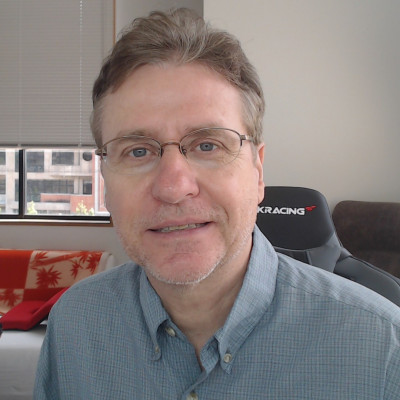Not Logged In
[Zoom] You need to be logged in, be a member, and get a ticket to attend this session.
Show & Tell Presentation Regular Presentation
Competency Maps and Reflective Learning on DotCampus
Like most universities in 2020, my university switched entirely to online teaching during the pandemic, when it found itself suddenly relying on the existing institutional LMS, DotCampus, to deliver instruction, despite the fact that few teachers had prior experience using the system. Since then, most teachers have become adept at using DotCampus, which creates an opportunity for the university to enhance its computer-assisted education in the post-pandemic era. However, the central design feature of DotCampus, competency maps/reflective learning, is not being utilized at all. In this presentation, I will show how I have implemented this feature into my English communication courses to strengthen learner autonomy/self-awareness by having students engage in regular reflection on unit and course goals as well as on individual tasks, such as performance on interactive speaking and writing activities. These written reflections will be linked to the competency map for the course (prepared in advance by me), which contains rubrics for self-assessment in the following categories: 1) self-reflection, 2) learner autonomy, 3) interactive listening, 4) interactive speaking, and 5) presentation participation. Additionally, these reflections can be made available for peer review and feedback. These reflections (and their associated rubrics) are not intended for grading purposes; rather, they are the means by which the student tracks their own “journey” of learning during the course. The Journey Dashboard within DotCampus allows the teacher to track each student’s reflections along with radar charts of the results of their self-assessments. The presentation will conclude with the results of feedback from students.
-

Professor at Kanazawa Seiryo University and Assistant Dean of the Department of Liberal Arts & Sciences. A longtime resident of Japan (30 years), I hail from Texas originally. I returned to the US five years ago to teach at a small liberal arts college in Illinois. Returned to Japan two years later. Reverse-culture shock is a tough one, let me tell you. I have been at my current institution for 3 years, "acting" as assistant dean, which is to say that I do my best to help the dean without being too overwhelmed by the Japanese. We are attempting to liberalize and modernize the curriculum, meaning more integration of the curriculum, more learner-centered education, more learner autonomy, more active learning (the real kind, and not the lip service), and more IT...lots more.